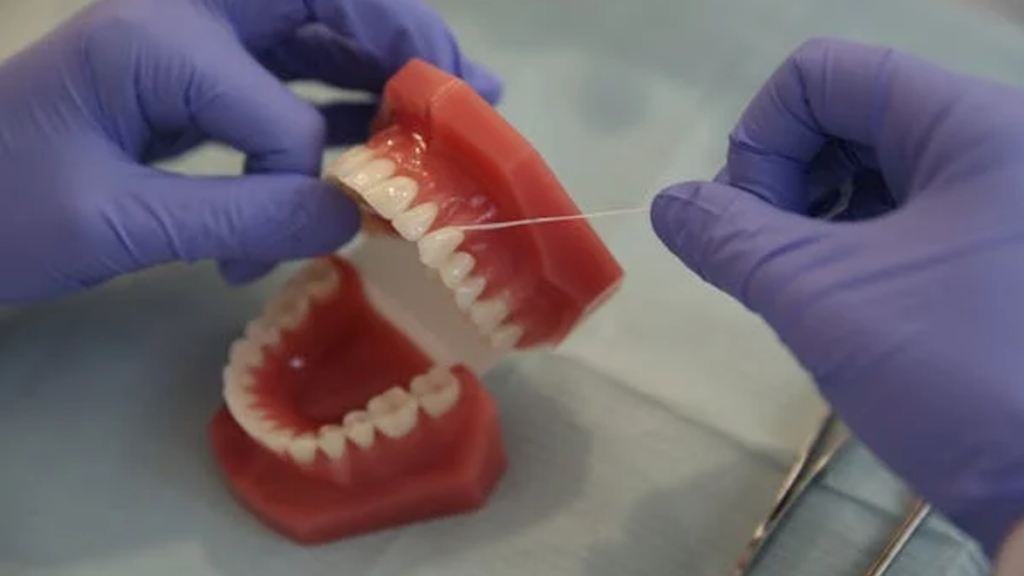Are you having continuous issues with dental pain and your teeth in general? Do you spend a fortune on over-the-counter pain medication to deal with sensitive teeth and re-occurring dental infections?
There’s a general misconception that dentures are only for senior citizens who have lost their teeth due to ageing. However, the reality is that the dentures Mornington adults are switching to are more common than you may think.
Don’t Ignore the Denture Signs
Needing dentures isn’t something that happens from one day to the next. For many people, dentures are only an option after years of suffering from dental pain, constant inflammation and eventual tooth loss. Knowing what the signs are may help you make more informed choices about your dental care. Ultimately, this could help you enjoy the benefits of your own teeth for as long as possible. Here’s what you need to look out for.
1. You Have Gaps Between Your Teeth
Typically, gaps in your teeth form over time as a result of advanced gum disease. When these gaps become too big, you may no longer like the way your mouth looks when you smile. Large spaces in your mouth can also affect your speech and the comfort with which you’re able to eat.
If left untreated, these teeth may need to be extracted, leaving you needing dentures. To avoid this situation getting this far, speak to your dentist as soon as you start developing signs of gum disease. In the early stages of gum disease, your dentist may opt for periodontal treatment.
This type of treatment may consist of cleaning the pockets around the teeth to prevent further damage to the surrounding teeth and gums. Your dentist may also advise you of improved dental hygiene techniques.
2. You Start Losing Your Teeth at a Young Age
There’s no guarantee that your teeth will remain in your mouth until old age. A wide range of factors can cause teeth to weaken and break or fall out sooner than you had expected. Dental experts suggest that you visit your dentist regularly to detect and possibly prevent teeth from getting so weak that they break or need to be removed.
Additionally, if you have lost more than two teeth, experts also recommend that you consider adding one of the prosthesis teeth options. This prevents excessive pressure on the remaining teeth. Depending on fewer teeth to do the job of all your teeth will speed up the loss of the other teeth. Remaining teeth may also start shifting into the open gaps in your mouth, which may require them to be removed to prevent further gum damage.
3. Your Gums are Swollen, Red, Tender, or Bleeding
Irritated gums are usually a clear sign that you may be developing periodontal disease and early gingivitis. Since this is the number one reason for adult tooth loss, it’s essential to address any signs of sore, bleeding gums as soon as possible. If left untreated, tender gums can lead to tooth loss, bone loss, and ultimately, dentures.
4. You Experience Chronic Toothaches
Many people experience chronic toothache all the time. This can make eating, drinking, and even smiling uncomfortable. Chronic pain usually means that decay or inflammation attacks the nerve in the pulp of your tooth. If caught early enough, your dentist can treat this with a simple filling or a root canal procedure.
Unfortunately, leaving this to reach the advanced stage can lead to you needing full or partial dentures. If over-the-counter dental pain medication has become a permanent fixture in your medicine cabinet, it may be time to address this with your dentist.
5. You Often Suffer From Frequent Indigestion
When you’re struggling with painful teeth and gums, you may find it increasingly difficult to chew your food properly. Without correctly grinding and breaking food apart, bigger pieces of food are swallowed.
These can be difficult to digest and in turn lead to indigestion and bloating. If your mouth is continuously too sore to eat properly, and you suffer from indigestion speak to your dentist to check if the two issues are related.
6. You Avoid the Dentist at All Costs
Dental anxiety is common in children and adults alike. People tend to feel more anxious when they know that they’re having problems with their teeth. However, it’s essential to visit your dentist every six months.
They will then be able to monitor any changes in your mouth and provide the necessary treatment. In most cases, early treatment can be very beneficial. The good news is that modern dentistry has many varying treatment options that can make all the difference.
Final Thoughts
Knowing what signs to look for will help you adjust your dental care routine so that you don’t have to endure the pain of broken and damaged teeth and gums. While you may not look forward to getting dentures, the good news is that if you do end up needing them, they will make it possible for you to eat and regain the confidence a new smile brings!
